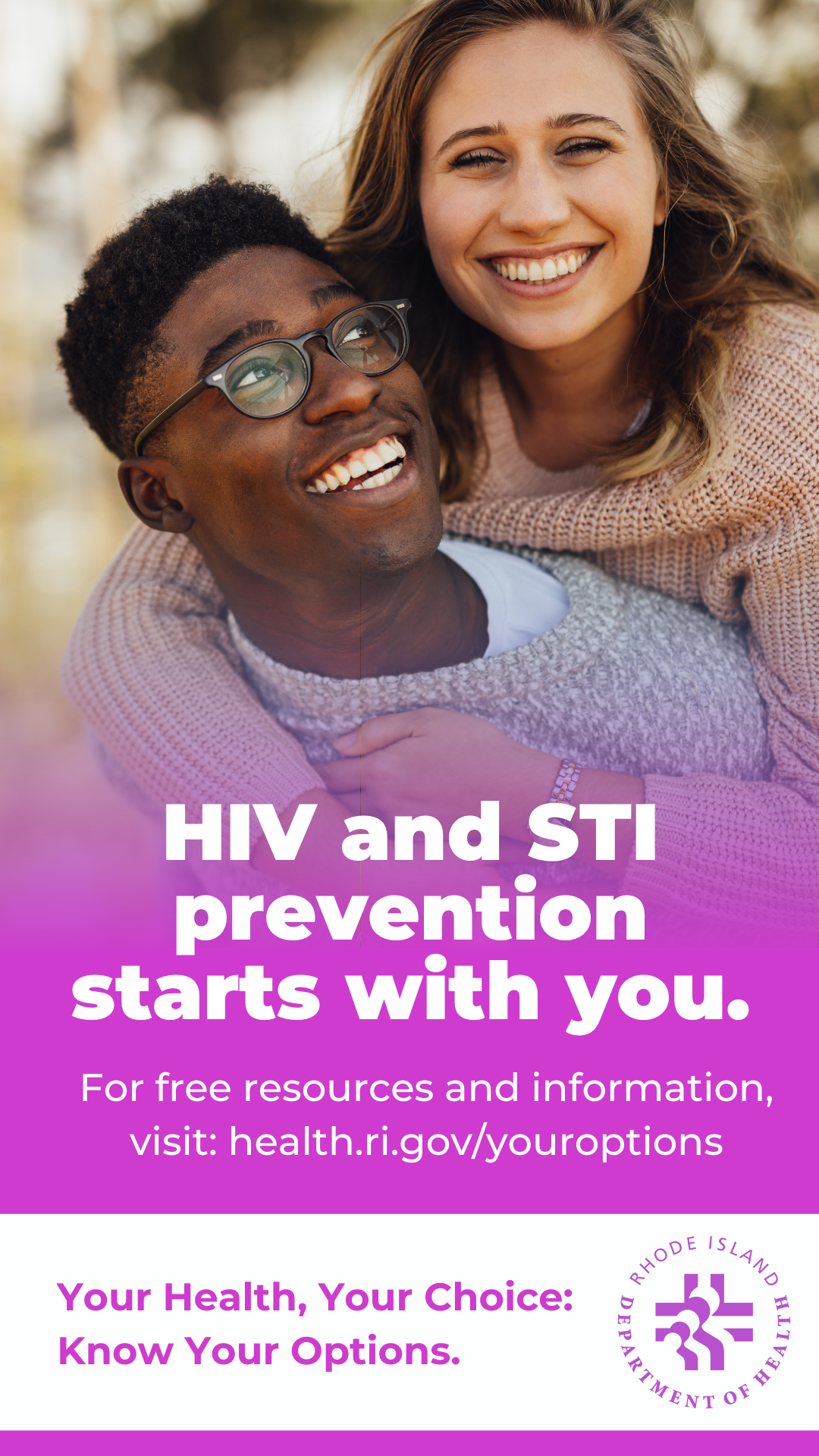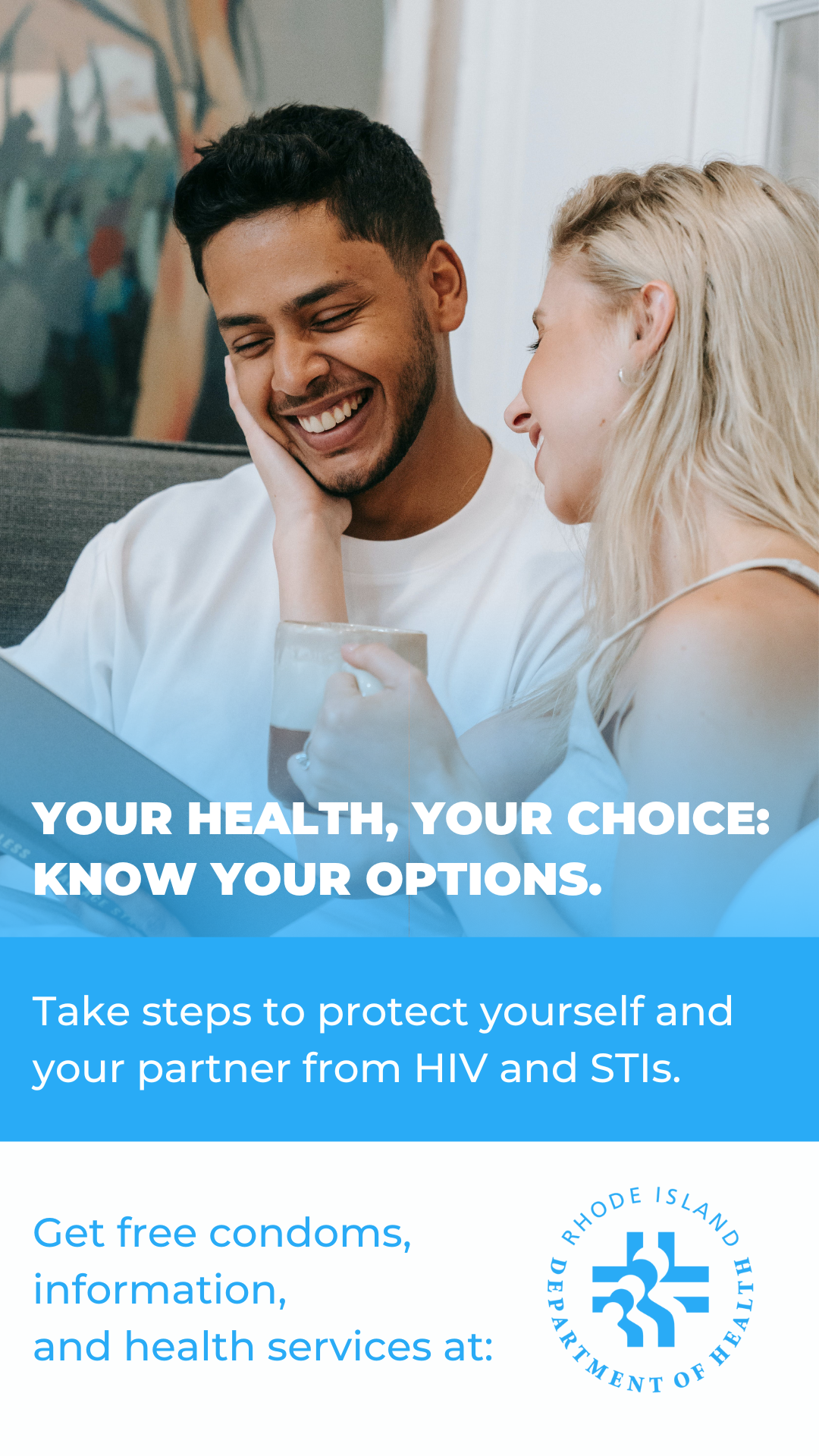 Rhode Island Department of Health
Rhode Island Department of HealthState of Rhode Island
Department of Health
 Rhode Island Department of Health
Rhode Island Department of HealthState of Rhode Island
Department of Health
Understanding how to protect yourself from HIV and STIs is the first step you can take to keep yourself safe and prevent the spread to others. Let’s explore different preventative options.
Use condoms: Rhode Island cares about your well-being. The Condoms By Mail Program offers discreet, and convenient delivery right to your mailbox.
Have a conversation: We understand that discussing sensitive topics with your partner may feel difficult, but having open and honest communication is important for the health of your relationship.
Reduce the number of sexual partners: Reducing the number of sexual partners can decrease the risks for HIV, STIs, and mpox.
Avoid the use of alcohol and drugs: Drinking alcohol or using drugs during sexual activity can increase your chances of risky sexual behavior.
Get tested regularly: Make testing part of your routine. Find a primary care physician or clinic near you. You can even check out the Rhode Island Department of Health's TESTING 1-2-3 Program, where you can get tested for HIV, Hepatitis C, and STIs without having to leave your home. It's a simple way to prioritize your health.
You can also get a free, confidential rapid HIV test from several community organizations statewide who administer these tests or you can order a free at-home HIV test kit from AIDS Project RI. The Together Take Me Home Program also offers free rapid HIV tests that can be sent to anyone 17 or older in the United States, including Puerto Rico.
You can find a list of clinics that offer HIV and STI testing. A primary care provider can also order these tests.
Go to the Miriam Hospital STI Clinic, which has regular walk-in hours.

 While there isn't a cure for HIV, there are treatments that enable those affected to enjoy a healthy and happy lifestyle.
While there isn't a cure for HIV, there are treatments that enable those affected to enjoy a healthy and happy lifestyle.
If you have HIV, you can prevent passing it to others. Your partner can discuss Pre-Exposure Prophylaxis (PrEP) with their doctor. PrEP is an option to prevent HIV for those not living with it but are at risk of getting an infection. If you think you've been exposed to HIV, talk to your doctor about Post-Exposure Prophylaxis (PEP) to prevent infection.
There are many treatments for STIs and STDs. Most STDs can be cured with antibiotics. While others may not be curable, they can still be treated. If you are diagnosed, encourage your partner to get checked to prevent reinfection and avoid having sex again until you and your partner(s) have finished treatment.
In addition, gay, bisexual, and other men who have sex with men, and transgender women, are encouraged to learn more about Doxy PEP, a newly recommended STI prevention strategy that involves taking doxycycline after risky sex to prevent chlamydia, gonorrhea, or syphilis.
Vaccines play a crucial role in preventing both diseases and infections. One important prevention tool against sexually transmitted infections is vaccination. Vaccines protect against infection with Human Papillomavirus (HPV), hepatitis A, and hepatitis B. It is also very important for sexually active people who may be at risk of mpox infection to take precautions and get vaccinated against mpox.
Talk to your doctor/healthcare professional or pharmacist if you have any questions about vaccination and options for getting vaccinated.